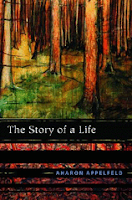 Dani Kollin, co-author of The Unincorporated Man, is an advertising copywriter currently living in Los Angeles, California. He has also worked as a creative director and copywriter in the print, broadcast and new media fields.
Dani Kollin, co-author of The Unincorporated Man, is an advertising copywriter currently living in Los Angeles, California. He has also worked as a creative director and copywriter in the print, broadcast and new media fields.Yesterday I asked him what he was reading. His response:
I generally read and or listen to numerous books simultaneously. Presently I am working my way through three.Visit Dani Kollin's blog and The Unincorporated Man website.
1. On dailylit.com I'm reading Cory Doctorow's Overclocked. It's a dystopian story in which (at least initially) the world is held together by a bunch of tech headslucky enough to have been ensconced in their dimly lit cubicles when all hell broke loose - outside. What I love about this read is that Cory strings it along through texting and traditional writing which makes the writing convention alone (not to mention Cory's insouciant writing style) quite enjoyable. I'm only about a third of the way through but so far so good.
2. On audio CD: Ayn Rand: Capitalism, The Unknown Ideal. This book is a searing commentary on the machinations of the left and the right with regards to both parties abject disregard or abjuration of the idea of freedom. What's more is that to listen to this book now, some 43 years after its first printing is to listen to the the prescience of the author herself. Agree ordisagree, it's hard to deny the fact that she not only predicts our current financial crisis to a T but nails the all too familiar culprits squarely to the wall in doing so.
3. Ursula K. Le Guin - The Dispossessed. I'd been meaning to get to a Le Guin book for some time. When you hang in my circles certain names keep cropping up and hers was one of them. This Hugo-award winning book, written in the 70's attempts to paint a portrait of Capitalism vs Communism via two worlds separated by mere hundreds of thousands of miles (Think, Moon is A Harsh Mistress by Heinlein but switch the 'isms'). First the negative: I'm finding the book a bit of a slog. I care not one iota about the protagonist (Shevek) and to be perfectly honest find the world he walks through to be rather droll. To be fair this may be backwards myopia, as I'm reading it through the lens of a new millennia as opposed to the very pressing concerns of that time (the Soviet Union vs the U.S.).Still, there were plenty of other books that took Communism to task and yet still managed to maintain a plot structure that was both compelling and addictive. This book, IMHO, is not one of them. So why am I reading it to the end? Because Ms. LeGuin is a writer's writer and without a doubt one of the most beautiful and poetic authors I've ever had the pleasure of reading (in fact, comparable to Bradbury in her prose). I find myself re-reading passages because they've been set up and crafted so eloquently. In fact I've spent an inordinate amount of time copying my favorite passages and sentences to a word doc so that when I write to a particular emotion or description I have something to look at and aspire towards. Here's one brief example in which she describes an aspect of the protagonist: "He welcomed isolation with all his heart. It never occurred to him that the reserve he met in Bedap and Tirin might be a response; that his gentle but already formidable hermetic character might form its own ambience, which only great strength or great devotion could withstand." What an incredible description. What an incredible writer.
Next up on my list:
1. Vernor Vinge's - A Fire Upon The Deep. Yes, it's space Opera but the first of the series, the Hugo-award winning, A Deepness In The Sky, was really, really good space opera. I'm really looking forward to diving in to his prequel.
2. On audio CD: Doris Kearn Goodwin's: Team of Rivals about Abraham Lincoln's famously contentious cabinet.
--Marshal Zeringue


































